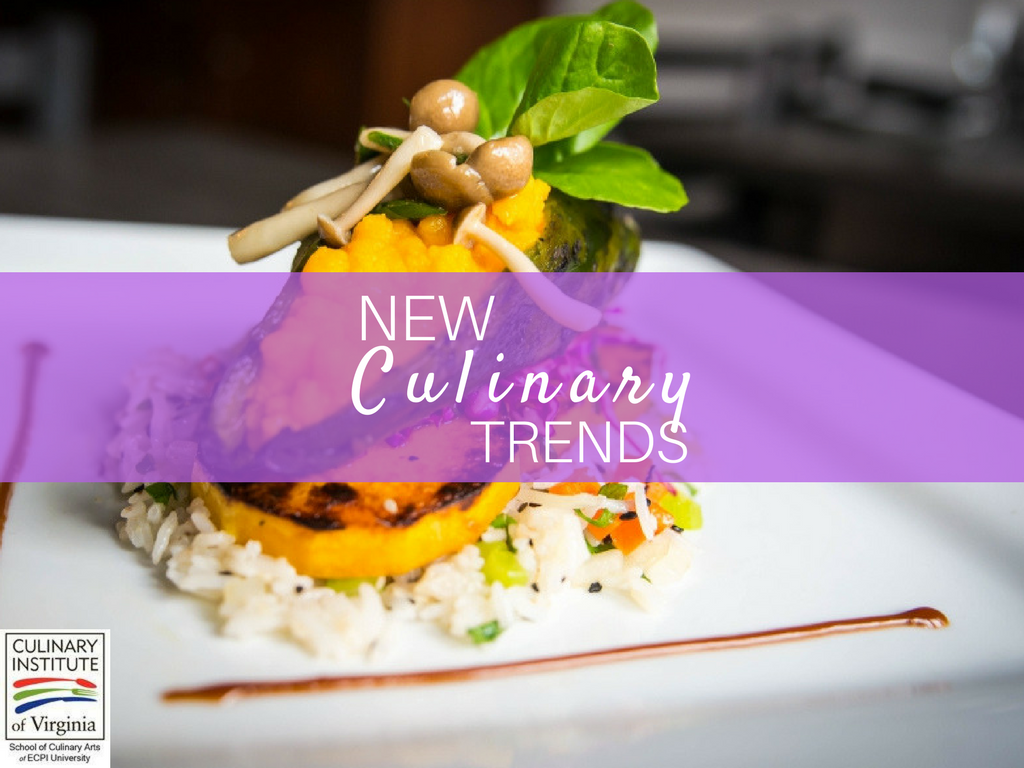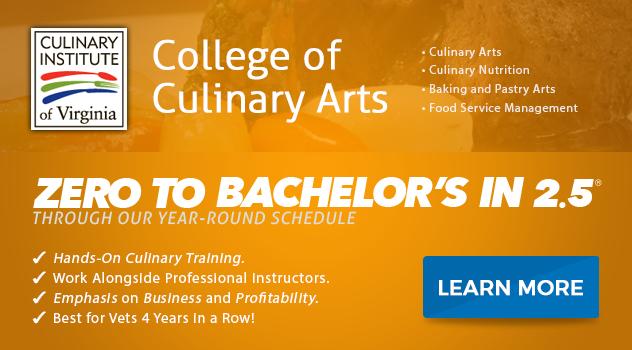New Culinary Trends: The Cutting Edge of Food
There was a time when American restaurant fare seemed to remain pretty much the same for decades, with little variation other than the occasional fad, like crepes in the '70s or fondue in the '60s. Nowadays, there are scores of culinary trends, so that the cutting-edge chef is hard pressed to keep up. From grass-fed beef, to gluten-free pastries, to street food-inspired international creations, culinary trends just keep cropping up, so it’s in today's chefs’ best interest to be in the know and even a step ahead.
How Culinary Trends Happen
While some culinary trends are likely to be retailer-inspired, with a boost from a public relations firm, others are more organic and genuine, arising for a variety of reasons, including the ones listed here.
Health. Health concerns are of paramount importance to diners these days, such as the following:
- reducing calorie intake
- eliminating allergens (gluten, for example)
- focusing on vegetarian entrees instead of meat
- gravitating to a kids' menu that will tempt younger folks to scarf up their vegetables.
Regardless of the concern, there's bound to be a cutting-edge restaurant that's on top of it.
Environmental sustainability. A growing number of diners want to know if the fish they've ordered was sustainable caught, or if the coffee they're sipping was grown where wild bird habitat was destroyed. Additionally, many restaurant customers care about the conditions under which the animals they consume were raised. Some of these diners are inclined to show their support for more humane farming practices by avoiding restaurants who aren’t forthcoming about how the animals were treated.
Nostalgia. Some folks couldn't be happier than when they can travel back in time and dine on the kind of food Mom served up, so chefs are often inspired to create a new take on meatloaf, Salisbury steak, or mashed potatoes. New trends in nostalgic foods can be inspired by old cookbooks, or the availability of heirloom fruits, vegetables, and herbs.
Travel. As more people travel, they're reaching into the farther-flung areas of the globe and tasting fare they never encountered in the US before. Chefs are traveling, too, and finding they can create excitement in the kitchen by bringing home and adapting recipes using some of the varied and abundant foods now found in the marketplace.
Availability of foods. Who knew what quinoa was a few years ago? Or for that matter, dulse, a type of seaweed used as a salt substitute? Now it seems there's no limit to what we can find in the market to make our own creations from the food we buy at international groceries, farmer's markets, and even online. Chefs know their diners are constantly sampling, experimenting, and shopping so they also know they've got to stay ahead of the trend.
How Education Can Help a New Chef Explore Trends
Formal education in culinary arts can certainly improve a budding chef's chances of getting hired, but it can also open the new chef to a whole world of culinary possibilities. Your education isn't just about attaining credentials: it's also about acquiring the language of the culinary world so you can understand the trends discussed above.
To do that you need to master the basics of cooking and baking, such as cooking methods and principles, baking and pastry fundamentals, preparing seafood, meat, and poultry, learning how to organize a kitchen, and also learning about nutrition and healthful cooking. Once these practices become second nature with you, you're on the road to discovering and experimenting, and possibly even creating some of the culinary trends of tomorrow.
Are you interested in exploring an Associate of Applied Science Degree in Culinary Arts? ECPI University’s Culinary Institute of Virginia offers this degree in a hands on format, making the kitchen your classroom. For more information on this exciting program, contact a helpful admissions advisor.
It could be the Best Decision You Ever Make!
DISCLAIMER – ECPI University makes no claim, warranty, or guarantee as to actual employability or earning potential to current, past or future students or graduates of any educational program we offer. The ECPI University website is published for informational purposes only. Every effort is made to ensure the accuracy of information contained on the ECPI.edu domain; however, no warranty of accuracy is made. No contractual rights, either expressed or implied, are created by its content.
Gainful Employment Information – Culinary Arts - Associate’s
For more information about ECPI University or any of our programs click here: http://www.ecpi.edu/ or http://ow.ly/Ca1ya.




